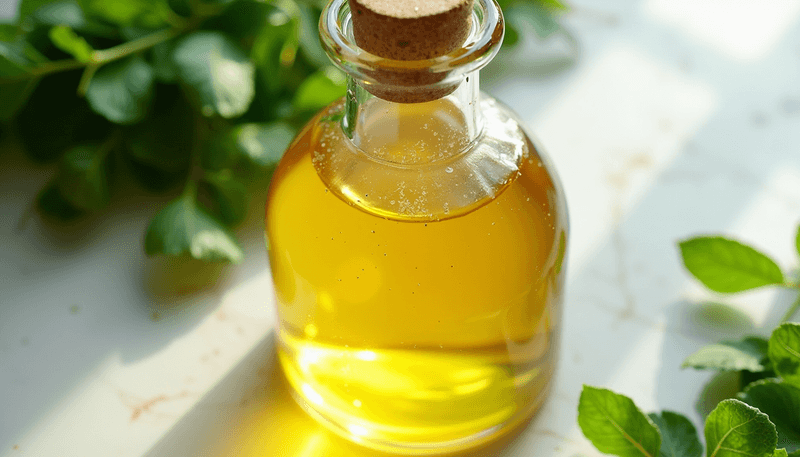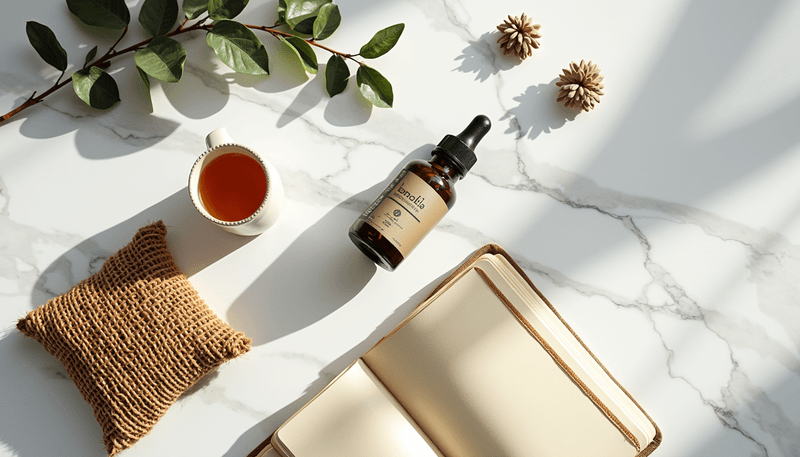Perilla Oil: Nature's Mood Support Secret

In our quest for natural ways to support mental wellness, emerging research is shining a light on an unexpected hero: perilla oil. A fascinating 12-month study published in Foods (https://www.mdpi.com/2304-8158/9/4/530) reveals promising insights about this traditional Asian oil and its potential impact on our mental well-being. As someone who's spent years helping women navigate health choices, I'm excited to share these evidence-based findings that could make a real difference in your daily life.
The Omega-3 Connection: Your Brain's Best Friend
Think of omega-3 fatty acids as your brain's maintenance crew. Just as your house needs regular upkeep to stay in good condition, your brain requires specific nutrients to maintain optimal function. Perilla oil is particularly rich in α-linolenic acid (ALA), an omega-3 fatty acid that serves as a building block for brain health.
Did you know? Perilla oil contains the highest proportion of omega-3 fatty acids among all plant-based oils!
The study showed that participants taking perilla oil experienced significant improvements in their mental well-being scores after just three months. This improvement wasn't just a temporary boost – it continued throughout the entire 12-month study period.
Daily Dosage: Less is More Than You Think
One of the most practical findings from this research is that significant benefits were achieved with just 7ml of perilla oil daily – that's about 1.5 teaspoons. This modest amount led to:
- Improved mood scores
- Better motivation levels
- No significant side effects
Question to ponder: What small, sustainable changes could you make to your daily routine to incorporate this amount of healthy oil?
Practical tip: Try adding perilla oil to your morning smoothie or using it as a finishing oil on your lunch salad. Remember, it's not meant for high-heat cooking!
The Inflammation Connection
Perhaps the most intriguing finding relates to how perilla oil might help combat brain inflammation. Think of inflammation as a slow-burning fire in your body – when unchecked, it can affect your mood and mental clarity.
The research showed that regular perilla oil consumption led to beneficial changes in several key markers of inflammation and stress in the body. This may explain why participants reported feeling more balanced and motivated over time.
Key insight: The anti-inflammatory effects of perilla oil work gradually – this isn't a quick fix but rather a long-term investment in your mental wellness.
The Gender Factor: A Special Note for Women
An interesting aspect of the study was that women showed particularly significant improvements in depression scores compared to men. This gender-specific benefit suggests that hormonal factors might play a role in how our bodies utilize these beneficial fats.
Consider this: How might your current diet be supporting (or not supporting) your mental well-being?
Conclusion: Simple Changes, Significant Impact
The evidence is clear: incorporating perilla oil into your daily routine could be a simple yet effective way to support your mental health naturally. While it's not a replacement for professional mental health care when needed, it represents an accessible, science-backed tool for maintaining mental wellness.
Your Action Step: Start small – try incorporating just one teaspoon of perilla oil into your daily routine for the next month. Pay attention to how you feel, keeping a simple mood journal to track any changes. Remember, sustainable changes often start with small, consistent steps.
Final thought: What one step will you take today to prioritize your mental wellness?

Dr. Anya Sharma, MD
Dr. Anya Sharma is a board-certified gynecologist with over a decade of experience specializing in women's health and patient education. She graduated from Johns Hopkins School of Medicine and completed her residency in Obstetrics and Gynecology at a top hospital in New York City. With a passion for empowering women, Anya transitioned to content creation to provide accessible, evidence-based information on health topics relevant to mid-aged women. Her empathetic and pragmatic approach combines medical expertise with relatable insights, making her a trusted voice in the field.







